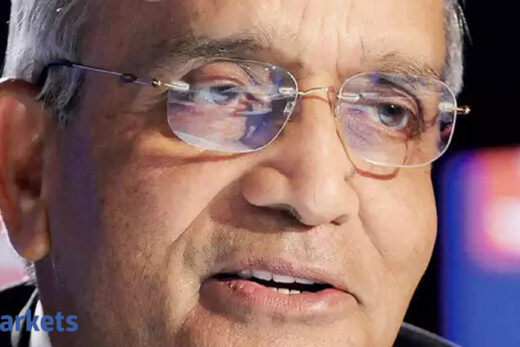The possible induction of Rumayyan into the RIL board would also be the first for any foreign citizen. He is counted among the most influential decision makers in the world of energy and investing and is closely involved in Saudi prince Mohammed bin Salman’s plans to diversify Saudi Arabia’s petroleum dependent economy, said officials who have been briefed on the matter.
A formal announcement, according to some, may happen in the upcoming annual general meeting (AGM) of RIL, scheduled for later this month.
Apart from having deeper implications for Indo-Saudi oil diplomacy, which had frayed in recent months, Reliance watchers see this as a strategic step leading to the culmination of the much-awaited $15 billion investment by Aramco in RIL’s oil refining and petrochemicals arm, first announced in the 2019 AGM by RIL chairman Mukesh Ambani.

“The decision has been blessed at the highest levels in both countries. The Aramco-Reliance partnership is imperative at multi-levels – from locking in long-term oil sales and market access to being a calculated move for the future as both the giants are trying to reorient themselves in a fast-changing energy landscape where there is growing pressure from investors, policymakers, money managers and activists moving away from fossil fuels,” said an official who spoke on condition of anonymity as the matter is not in the public domain.
“Both companies are betting big on hydrogen and other frontier technologies. Moreover, PIF is already a key ally in various digital and new economy initiatives of Reliance. Rumayyan is the boss of both.”
PIF has already deployed $3.3 billion over three investments in Reliance Jio Platforms, Retail and Digital Fiber Infrastructure Trust (DFIT), the infrastructure investment trust that holds Reliance Jio’s telecom fiber assets.
THE BRAIN TRUSTS
Of the 14 members on the RIL board, half are independent directors. They include former State Bank Chair Arundhati Bhattacharya, Adil Zainulbhai, former chairman of McKinsey & Company, India, RA Mashelkar, the former Director General of the Council of Scientific and Industrial Research and YP Trivedi, a practicing senior advocate at the Supreme Court of India. Analysts expect some of the older members might also be stepping down from the board or retiring soon making room for fresh blood.
Even though Reliance has joined forces with several marque global financial and strategic investors like ADIA, KKR, Silverlake, besides Facebook and Google for a record capital raise in its telecom and retail verticals, only the two Silicon Valley technology giants got board representation and observer seats without voting powers at Jio Platforms Limited (JPL), but none on the main Reliance Industries board. “This (Aramco and Reliance) is a special and multi-decade relationship that has transcended beyond the supplier-refiner relationship,” added a Singapore based energy consultant who also did not wish to be named.
Beyond the corporate camaraderie, a personal rapport between Ambani and Rumayyan, a former local banker has also blossomed, say people in the know. Other than the Kingdom’s Oil Minister Khalid al-Falih, the Aramco boss was also part of the wedding festivities of the Ambani children, Akash and Isha. Likewise, Ambani has been a key guest in the Future Investment Summit, the annual high-profile investment conference in Riyadh, billed as the Davos in the Desert extravaganza.
“We are pleased to further our trusted partnership with Reliance Industries Ltd, a leading player in some of India’s most exciting sectors,” Rumayyan, had said last November after investing Rs 9555 crore ($1.3 billion) in Reliance Retail.”
ENERGY KINGPIN
With an aim to become the world’s “most impactful investor” and the largest sovereign wealth fund, PIF has been at the centrepiece of Crown Prince Mohammed bin Salman’s plans to diversify the Saudi economy. And installing Rumayyan, a golf and Cuban cigar loving executive, to lead both the state backed oil company and the SWF underscores his influence. PIF has incubated a bunch of ambitious multibillion-dollar mega projects in the kingdom, forged new industries from scratch and has even snapped up stakes in emerging and public market companies including ride-hailing app Uber, Lucid Motors, Jio, besides bankrolling the Softbank Vision Fund.
In 2020, PIF received $40bn from the central bank’s foreign reserves, and was the main beneficiary of the December 2019 stock market listing of oil company Saudi Aramco, which raised $29bn by releasing just a small slice into public hands.
The finalisation of the Aramco-Reliance alliance had been impacted due to the pandemic and its fallout on the finances of Saudi Aramco, which generates the bulk of the kingdom’s revenues and has been under pressure to hand out tens of billions of dollars in dividends to the state. But with RIL announcing the contours of the demerger of its oil to chemicals vertical into a wholly owned subsidiary, as first reported by ET in its February 19 edition, most expect the Aramco investment to move forward. It is likely to be a combined cash and stock deal.
While some Aramco executives have been more keen to conserve cash rather than carry out another mega investment, at a time when oil demand and prices have been volatile and dividend payouts high to meet budget deficits, the Reliance deal has been viewed as a long term alliance that will facilitate the economic and energy dialogue between the two countries.
The US had edged past Saudi Arabia as India’s second largest oil supplier as New Delhi aggressively sought to diversify its import basket, following a public war of words between petroleum minister Dharmendra Pradhan and his energy counterpart in Riyadh, Abdulaziz bin Salman over rising crude prices during March-April this year. Unable to convince Riyadh, Pradhan had urged state refiners to start diversifying supply sources. Since then conscious attempts have been made to bring both sides together including shipments of emergency oxygen supplies to India last month to tackle the Covid crisis in April-May this year.



